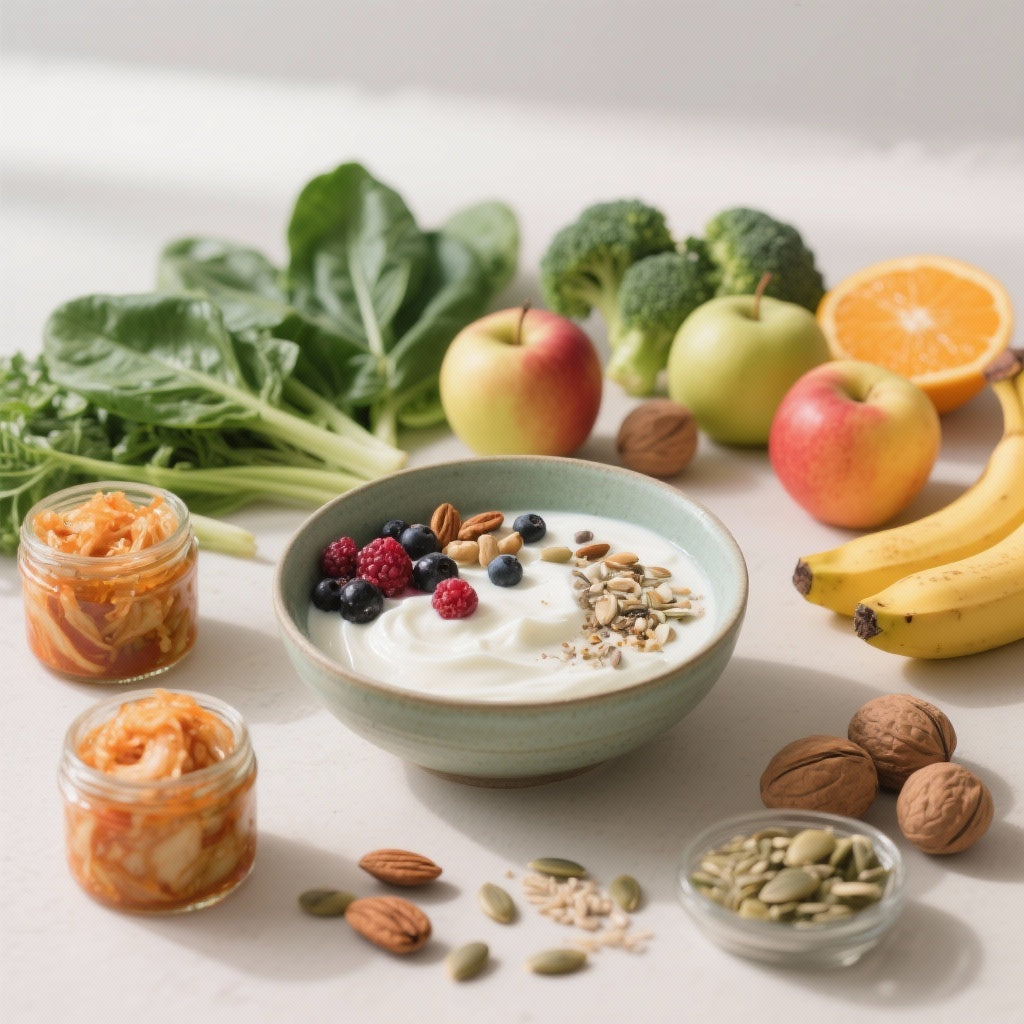The Impact of Digestive Health on Happiness: A Complete Guide
Have you ever felt a connection between your stomach and your mood? It's not just a hunch. Science reveals a deep and complex link between our digestive health and our emotional well-being, our happiness. The gut, often called our "second brain," is home to billions of microorganisms that influence not only our digestion, but also our brain and our emotions.
In this article, we'll explore this fascinating connection. We'll delve into your gut microbiota, discover how it communicates with your brain, and identify key strategies to improve your digestive health and, consequently, your happiness. Prepare for an informative and transformative journey that will give you the tools to cultivate a happy gut and, by extension, a more joyful life.
The Gut Microbiota: A Complex Ecosystem
The gut microbiota, formerly known as gut flora, is a complex community of microorganisms (bacteria, viruses, fungi, etc.) that live in our digestive tract. It is not simply a collection of microbes; it is a dynamic ecosystem that plays a vital role in our overall health.
Each individual has a unique microbiota composition, influenced by factors such as genetics, diet, environment, and antibiotic use. A healthy microbiota is diverse and balanced, with a predominance of beneficial bacteria.
The Gut-Brain Axis: Bidirectional Communication
The gut-brain axis is a bidirectional communication pathway between the digestive system and the brain. This communication occurs via several pathways:
- The vagus nerve: This cranial nerve is the main information highway between the gut and the brain.
- The immune system: The gut houses a large part of our immune system. Gut bacteria can influence the immune response, which in turn can affect the brain.
- Neurotransmitters: The gut produces neurotransmitters, such as serotonin (often called the "happiness hormone"), which influence mood and behavior. Approximately 90% of serotonin is produced in the gut!
This constant communication means that what happens in your gut can have a direct impact on your brain, and vice versa.
How Digestive Health Influences Mood and Happiness
An imbalance in the gut microbiota, called dysbiosis, can have negative consequences on mood and emotional well-being:
- Inflammation: Dysbiosis can lead to chronic low-grade inflammation, which has been associated with depression and anxiety.
- Reduced neurotransmitter production: An unbalanced microbiota can disrupt the production of serotonin and other neurotransmitters important for mood regulation.
- Intestinal permeability: Dysbiosis can damage the intestinal wall, making it more permeable ("leaky gut"). This allows inflammatory substances to pass into the bloodstream and reach the brain.
Conversely, a healthy and balanced microbiota can promote the production of beneficial neurotransmitters, reduce inflammation and strengthen the intestinal barrier, thus contributing to improved mood and happiness.
Strategies to Improve Your Digestive Health and Happiness
Here are some proven strategies for taking care of your digestive health and, by extension, your emotional well-being:
- Eat a diet rich in fiber: Fiber nourishes good gut bacteria. Consume fruits, vegetables, whole grains, legumes, and nuts.
- Incorporate fermented foods: Fermented foods, such as yogurt (with live cultures), sauerkraut, kimchi and kefir, are rich in probiotics, beneficial gut bacteria.
- Limit processed foods, sugar and saturated fats: These foods can promote the growth of harmful bacteria and disrupt the balance of the microbiota.
- Manage your stress: Chronic stress can negatively impact digestive health. Practice relaxation techniques such as meditation, yoga, or deep breathing.
- Get enough sleep: Quality sleep is essential for digestive health and overall well-being.
- Consider taking probiotics: If your diet is not sufficient, consult a healthcare professional to find out if a probiotic supplement might be beneficial.
- Avoid overuse of antibiotics: Antibiotics can kill beneficial bacteria and disrupt the balance of the gut microbiota. Use them only when absolutely necessary and as prescribed by a doctor.
The Importance of Hydration
Drinking enough water is crucial for good digestion. Water helps dissolve waste and facilitate its elimination, thus preventing constipation and promoting regular bowel movements. Aim for at least 1.5 to 2 liters of water per day.
Listen to Your Body
Everyone is different, and what works for one person may not work for another. Pay attention to your body's signals. If you experience bloating, abdominal pain, or other digestive issues, consult a healthcare professional for a proper diagnosis and treatment plan. Never ignore persistent symptoms.
The Role of Physical Exercise
Regular exercise can improve digestive health by stimulating bowel motility and reducing stress. Aim for at least 30 minutes of moderate exercise most days of the week.
A Happy Gut, A Joyful Life
In conclusion, digestive health is intimately linked to our happiness and emotional well-being. By taking care of our gut microbiota, adopting a healthy diet, managing our stress, and listening to our bodies, we can cultivate a happy gut and, consequently, a more joyful and fulfilling life. Remember that every little step counts, and even small changes in your lifestyle can have a significant impact on your digestive health and happiness. So, take care of your gut, and it will thank you!
Explore our other articles on wellness and healthy eating to deepen your knowledge and discover more tips for a healthier and happier life. Check out our recipe blog for delicious and gut-friendly meal ideas.











